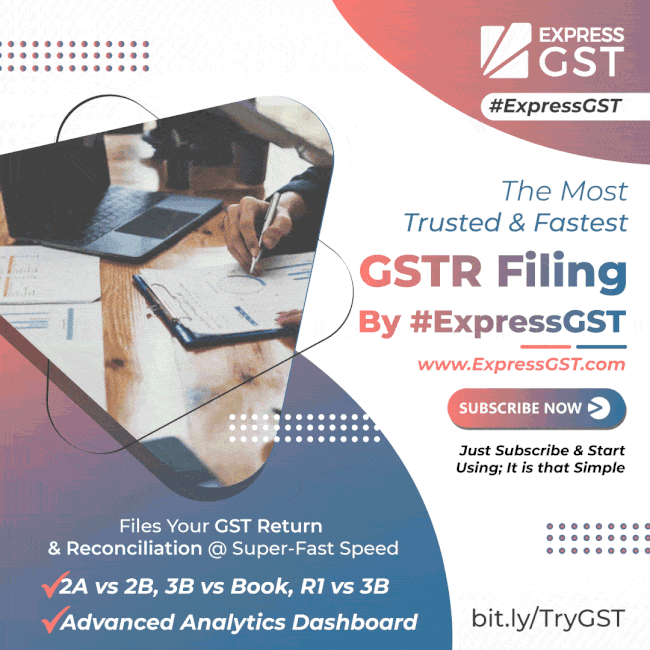GSTR 2B Reconciliation
Introduction

The Goods and Service Tax (GST) law provides that a registered taxpayer must claim Input Tax Credit (ITC) only to the amount of eligible ITC captured in form GSTR-2B. Any amount of GST due after considering ITC as per GSTR-2B must be paid at the time of filing GSTR-3B.
Thus, GSTR-2B is one of the important forms under the GST law. It provides the eligible and the ineligible amount of ITC, which a registered taxpayer must consider while filing GSTR-3B. The key features of the form are:
It is auto-populated by the GST portal based on GSTR-1, GSTR-5 and GSTR-6 returns filed by your vendors.
It remains static for a particular period. Unlike GSTR-2A, it does not change when every vendor files its GSTR-1.
It is available on the 14th of every month. So, you have the ITC data before filing GSTR-3B every month.
Pain points of GSTR-2B Reconciliation
Matching GST portal data with books of accounts
The GST department relies on ITC data captured on the portal based on inputs from your vendors. Hence, it is imperative to ensure that your books are in sync with the data captured in your GSTR-2A / GSTR-2B.
GSTR-2B downloaded every month captures data pertaining to various aspects like invoice-wise purchases, debit notes and credit notes, inward supplies on reverse charge mechanism, import of goods, ITC reversal etc. Matching all this data with your accounts books every month is a task. As volumes grow, it becomes difficult to reconcile manually. Using a good GST software tool becomes inevitable. For instance, if you find an entry in GSTR-3B from a third party from whom you have not purchased anything, you know it must be rejected to match your books.
Blocking working capital
GST is a value-added tax. In simple words, it means that taxpayers must pay tax on sales only after reducing the tax paid on purchases. However, the reduction of tax on purchases or ITC is available only if your suppliers file their GST returns on time. If they do not file their returns on time, ITC is not reflected in GSTR-2B. You cannot reduce ITC from your GST liability and have to pay additional GST at the time of filing GSTR-3B. This blocks your working capital in GST, which could otherwise have been used for business.
Discrepancies in data entry
Many SMEs still enter invoice data manually. In that case, there may be unintentional errors in the name of the taxpayer, GSTIN, place of supply, invoice number, tax rate etc. It may also happen that tax collected by the vendor as IGST is booked as CGST and SGST. Such errors block your ITC credit.
Difficulty in the process that one needs to follow
The government intends to make the entire GST system a seamless process where data input by one taxpayer can be used efficiently for tax paid by the other taxpayer. For this purpose, the accuracy and correctness of data become crucial right at the time of raising an invoice or at the time of accounting. The e-invoicing system mandated for larger taxpayers is a step in this direction. However, smaller taxpayers still enter the data manually. This leaves room for unintentional errors.
Deploying an expert GST tool helps in identifying such errors and reconciling them. Suppose you find a vendor who has not been filing GST returns for the past few months, your GSTR-2B will not reflect the ITC. You may then want to talk to the vendor or simply discontinue business with him if the ITC amount is substantial. Thus, the software helps you flag the transactions for which ITC cannot be claimed and helps you make informed commercial decisions.
Conclusion
As SMEs grow in size, the transaction volumes increase. The number of invoices increases rapidly. It is humanly impossible to do a manual reconciliation of data. Here, experts like expressgst.com come to the rescue. They help in superfast and advanced GSTR-2A / GSTR-2B reconciliation. The reconciliation can be done supplier wise as well as invoice wise. It ensures that your time and efforts are saved, and you can claim maximum ITC.
Video Demo!

